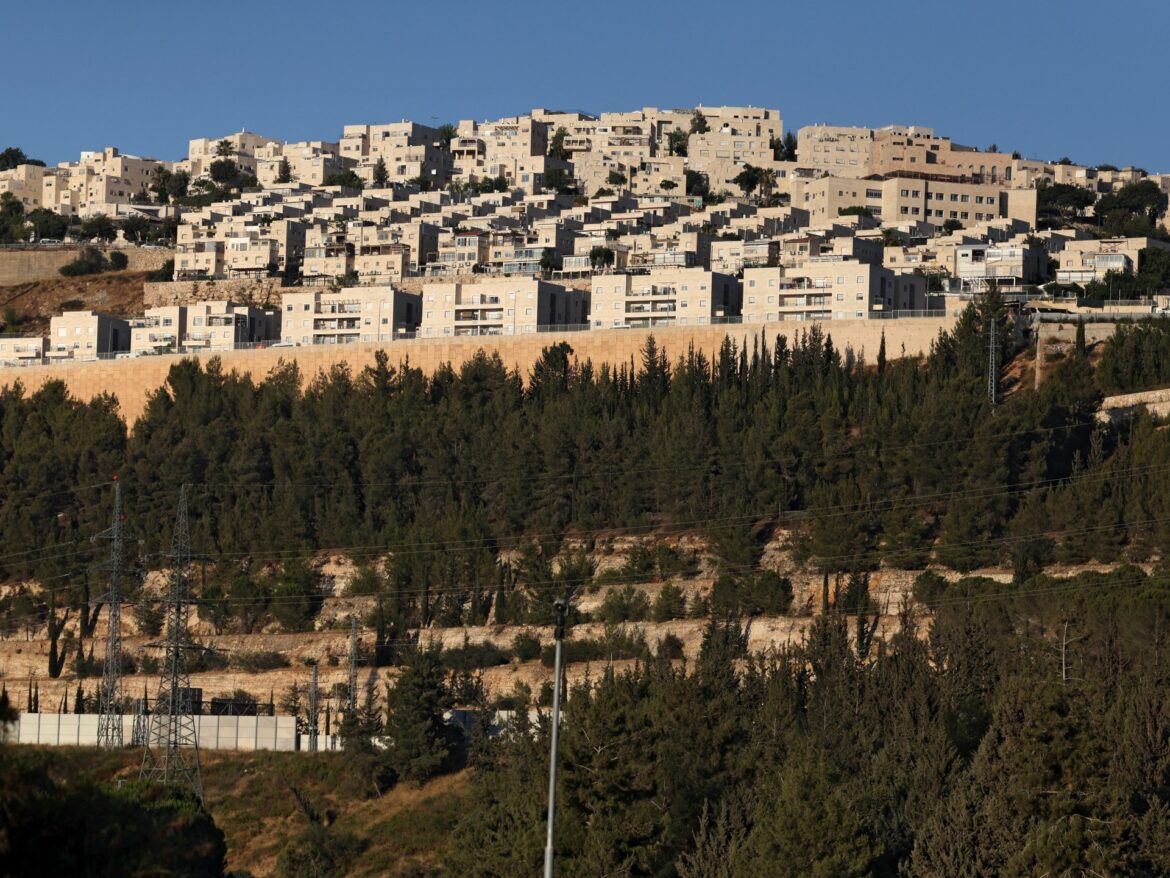Australia has sanctioned a number of Israeli settlers in the occupied West Bank, joining a growing number of countries introducing sanctions for illegal acts against Palestinians.
This comes days after the International Court of Justice (ICJ) issued a non-binding opinion that all Israeli settlement activities on Palestinian land are illegal and must cease as soon as possible.
Let’s take a look at the latest news and the current situation.
What are the sanctions against Australia?
Foreign Minister Penny Wong announced on Thursday that seven Israeli settlers and Hilltop Youth, an extremist settler group known for establishing new illegal outposts in the West Bank, have been blacklisted by the Australian government.
“The individuals sanctioned today have been involved in violent attacks against Palestinians. These include beatings, sexual assaults, and torture of Palestinians, resulting in serious injuries and, in some cases, death. The sanctioned entity is a youth group that incites violence and commits violence against Palestinian communities,” she said.
Australia has called on Israel to hold perpetrators of settler violence to account and to cease its ongoing settlement activities, while saying it considers Israeli settlements in the occupied Palestinian territory to be “illegal under international law and a significant obstacle to peace”.
Israel, which has been discussing the issue with Australia for months through diplomatic channels, has so far responded cautiously, saying only through its embassy in Canberra that it “will work to bring the extremist minority concerned to justice.”
Which other countries have imposed sanctions?
The violence in the occupied territories has been so widespread and escalating that some of Israel’s closest allies have also imposed sanctions – albeit on a limited scale.
In February, the administration of US President Joe Biden blacklisted four Israeli settlers for their role in attacks on Palestinians and Israeli activists, which would mean a freeze on any potential US-based assets.
On July 11, Washington sanctioned three more Israeli settlers and four illegal outposts, in addition to a violent settler umbrella group.
The European Union joined them a few days later, approving “restrictive measures” against five individuals and three entities responsible for “serious and systematic human rights violations against Palestinians in the West Bank.”
The sanctions freeze assets, block the flow of funds or economic resources and impose a travel ban within the 27-nation bloc.
The United Kingdom, France, Japan and Canada have also imposed similar limited sanctions on a number of settlers and entities that organize them, but have not extended these sanctions to the politicians and government entities that arm and mobilize them.
Did they support the end of all illegal settlements?
Israeli settlement activities and violence against Palestinians in the occupied territories have long been contrary to international law, a law that was only strengthened after the ICJ’s July 19 ruling.
The 15-judge panel of the United Nations’ highest court said Israel has engaged in a wide range of activities that violate international law, including the construction and expansion of settlements in the occupied West Bank and East Jerusalem, the use of Palestinian territory’s natural resources and the annexation of Palestinian land.
Critics of Israel’s Western allies say they have used virtually no tools at their disposal – including broader sanctions, trade sanctions or arms embargoes – to increase pressure on the most right-wing Israeli government in history, which declares far more occupied territory as Israeli state territory than previous administrations.
The United States, Israel’s staunchest ally, in February reversed an earlier policy saying Israeli settlements were “incompatible with international law,” but still rejected the ICJ’s ruling that the settlements were illegal.
“We are concerned that the breadth of the Court’s opinion will complicate efforts to resolve the conflict and achieve an urgently needed just and lasting peace, with two states living side by side in peace and security,” the U.S. State Department said.
Have sanctions really helped to curb violence or stop colonization?
Limited sanctions and muted rhetoric have done nothing to deter the Israeli government or settlers, who are attacking Palestinians and seizing land at an unprecedented pace since the start of the Gaza war, which has killed more than 39,000 Palestinians.
Since the war began on October 7, at least 563 Palestinians have also been killed in the occupied West Bank, mostly by Israeli soldiers, according to the United Nations.
During that period, at least 1,143 attacks by Israeli settlers against Palestinians resulted in casualties or damage to Palestinian property, the UN said.
Since the beginning of the war, Israeli authorities have demolished, sealed, confiscated or forced the demolition of 1,247 Palestinian structures in the West Bank, 39 percent of which (481 structures) were inhabited homes, according to UN figures. At least 2,836 people, including 1,245 children, have been displaced.
#Bank of the Westincluding East Jerusalem, since October 7.
❗️22% of Palestinians killed were in Tulkarem province
❗️+1,1000 attacks by Israeli settlers against Palestinians recorded
❗️Israeli authorities demolished/confiscated/forcibly demolished +1.2k Palestinian structures, displacing +2.8k people— UN Humanitarian (@UNOCHA) July 24, 2024
On July 2, Israel announced the confiscation of 12.7 square kilometers of Palestinian land in the Jordan Valley, the largest single seizure in over 30 years. In total, Israel has illegally seized 23.7 square kilometers of Palestinian land in the occupied West Bank by 2024, more than all the land seized in the past 20 years.
Israeli Finance Minister Bezalel Smotrich and National Security Minister Itamar Ben-Gvir, the two far-right ministers who are leading the charge against land seizures in the occupied West Bank and are allies of violent settlers, have pushed back against reports that the Biden administration is considering sanctions against them.
Both officials, who also oppose a ceasefire in Gaza, have vowed to prevent the formation of a sovereign Palestinian state. Ben-Gvir threatened last week to respond by “completely dismantling the Palestinian Authority, including all its institutions and economy” if the United States imposes sanctions on Israeli government officials.



